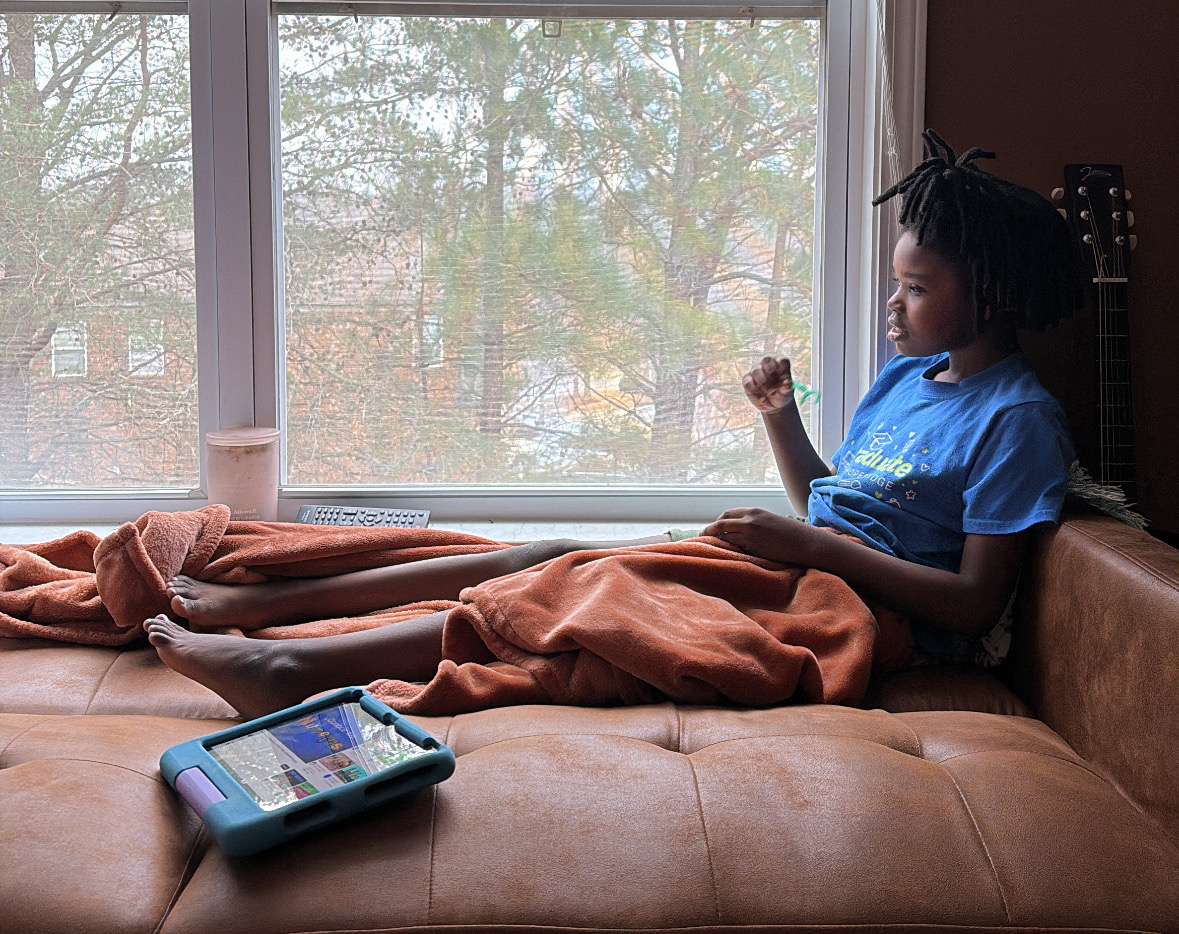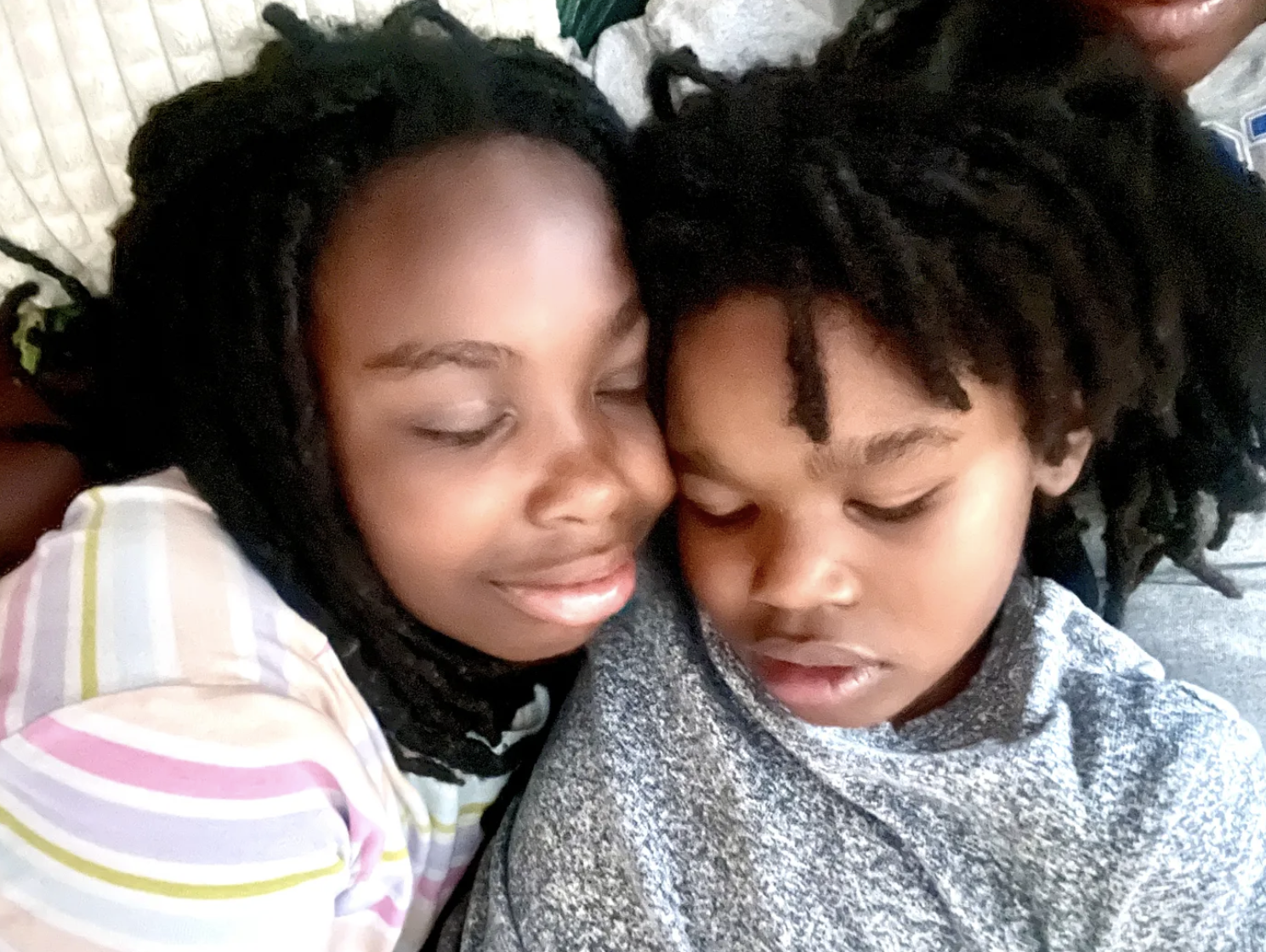I can’t believe I’m a mother. If you’re meeting me for the first time and…
My Son Was Kicked Out of the Church’s Special Needs Ministry
When my son was a baby, he would stare out into space and giggle like he was playing with an ancestor. He has always had the brightest smile and the coolest attitude — until he’s hungry, then he becomes a monster.
When he was two years old, we realized he wasn’t saying words the way his older sister was at that age. We thought maybe, he would start talking soon after but when that didn’t happen, we took him to get evaluated. At three, he was diagnosed as autistic and nonverbal.
Five years later, we’ve been able to get him ABA, occupational, and speech therapy along with a speech device that helps him communicate a variety of emotions, wants, and needs.
When we go out into the world, people talk to him with the expectation that he’ll respond. Or with the expectation that he’ll react to their joke or give them the high five they’re asking for. It’s always our job to say “he’s nonverbal” to curve their offense.
The world of Autism is vast — which is why it’s referred to as a spectrum. No autistic children are the same yet simultaneously, they share so many of the same traits. Things like stemming, tantrums, challenges with social interaction, repetitive behaviors, and sensory sensitivities — and our son is no different.
This means, wherever we go, we have to be cognizant of the environment. Will he be required to sit for long periods of time? Is there a room for him to roam? Is there a sensory room or personnel familiar with autism?
Many times, there are no accommodations and we have to find our own ways to help him navigate public spaces.
A year ago, by request of my daughter, we decided to return back to church after taking a break during covid. Though we’d been researching other options, we decided to go back to the church where I grew up because they have an amazing children’s and special needs ministry.
We re-enrolled both of our kids and started going back in January of 2024. Things were going well until a Sunday in September when I received this text from the special needs director, five minutes into service:
“Hi, your son is having a very difficult time. You’ll have to come get him. He’s hitting other children.”
I was shocked at this text because my son doesn’t usually hit anyone let alone children. I ran to the sensory room where she said they’d be and found him crying and upset. I asked the volunteer what’d happened because the director said he was hitting kids. The volunteer said “Oh, no he didn’t hit anyone. He just snatched a controller from another kid and bumped them a little when he sat down.”
Frustrated at the misrepresentation of his behavior but relieved that he wasn’t being violent, I stayed with him for the rest of service until it was time to pick up my daughter.
I let the director know I’d like to speak to her about this. Hitting kids and snatching a controller are two different things and it’s important that be highlighted.
We never got around to speaking about this and we both just moved on.
The next comment came in October and then again in November — “your son is having a hard time”. I’d like to detail, the “hard time” meant he was crying or throwing a tantrum.
She requested his IEP and expressed they needed a new plan for him. I sent it over to her and connected her to our ABA therapist who coincidentally worked as a leader in the special needs ministry there.
I sent her a message to express some clarifying thoughts around my sons behaviors and my frustration that as a special needs ministry, I expected that they would know to navigate tantrums and crying as this behavior is very common for a child with autism.
She responded that they’re a church, they’re trying, and they’re open to figuring this out with us. I appreciated this. We sent our ABA therapist to church with him one Wednesday to observe and give recommendations. We started sending him with his tablet, speech device, and snacks to help mitigate any possible tantrums — this seemed to help.
On Sunday, February 16th, at 11:26 AM, the director texted me to inform me that my son had thrown up and was in the sensory room.
I responded at 11:28 AM: “It’s okay. I’ll come get him. Is he cleaned up? Does he feel warm?” Since my son had been fine all morning, the vomiting was unexpected. My questions were meant to gain clarity and determine my next steps.
At 11:31 AM, she replied: “He threw up. His clothes are dirty. He’s in the sensory room.” I saw the message while walking toward the check-in desk and chose not to respond, assuming I’d get more details in person.
As I rounded the corner, I overheard the director speaking to two other leaders, reading my messages aloud in an irritated tone. Initially, I ignored it, but as she continued discussing me even as I passed, I felt compelled to respond.
“I can hear you talking about me — I’m standing right here,” I said. She was so engrossed in her conversation that I had to repeat myself before she acknowledged me.
She then walked up to me and said, “Yeah, actually, I’d like to talk about this. I found your questions really strange.”
“How was it strange?” I asked.
She responded, “Normally, a parent just says they’re on the way, not asks questions.”
“I was on my way. I just wanted some details,” I clarified.
She replied, “I didn’t have any details because I hadn’t been in there yet.”
After some back and forth, I decided to end the conversation and began walking away. As I did, she grabbed my arm with both hands. I asked her twice to let go before she finally released me.
Witnessing this interaction, a volunteer accompanied me to the bathroom, where she comforted me and explained that my son had been swinging too fast on the swing which likely made him sick. Grateful for the clarity, I thanked her for the details, and we changed his clothes.
The director later entered the bathroom with pants for my son to change into and attempted to continue the conversation. I told her I wasn’t in the right mindset to talk and that we would discuss it later.
I left the church with my son and texted her, asking her to reread my message — where I’d clearly stated that I was on my way. She apologized and expressed she had a long morning.
A couple weeks later, by her request, we had an in person meeting with the Pastors who oversee the children’s ministry. I’d sent over an account of the incident and expressed that we needed to talk about this. In the meeting, the Pastors expressed they didn’t want to “re-hash the situation” and asked the director not to attend the meeting.
We had a great conversation about how we could all work together to make sure my son had a great experience moving forward and we left.
March 12th, I texted the director to ask if the process had changed for attending, as I hadn’t received any messages from her asking if we were coming. No response.
My husband took the kids to church, and sat with my son in the kids sanctuary since there weren’t any volunteers available to be with him.
A few days later, we received an email from one of the pastor’s we’d met with letting us know they would no longer be able to accommodate my son and if we wanted to bring him back, we’d have to bring our own caregiver — who would need to undergo a background check.
As he hadn’t had any behavioral incidents since November, and we’d JUST had a meeting about how to move forward, we were shocked, confused, disappointed, and pissed.
I went through a myriad of thoughts — should I read them for filth in a carefully crafted email? Blast them on social media? Go up to the church and read them for filth in person? Should I follow the director on Facebook and send her annoying messages?
Ultimately, I decided I wouldn’t do any of those things. I’d tell the story and we’d find somewhere where our son would be loved, wanted, and accepted.
As we process and move on, I’m reflecting on two things —
- For others — If you’re going to be inclusive, you have to have the right accommodations for those you’re including. You can’t say you accept everyone and then not make space for everyone. Somehow, people can understand this when it comes to building ramps or elevators for those in wheelchairs but not so much for those with handicaps unseen.
- For us — when seeking care for our children, we must always ask if they have accommodations for autistic nonverbal children and what those accommodations look like. Many places say they are for kids with autism but when it comes down to it, they’re inadequately prepared to care for the needs and navigate the behaviors of children with autism. If the accommodations don’t fit, it’s probably not the right place for us.
I didn’t tell this story to bash the church. I shared it as just one example of what it’s like to be the parent of a child with autism. This isn’t the first (and may not be the last) time we’ve encountered a place that was “made for kids with autism” only to find out they couldn’t actually accommodate our child with autism.
And this doesn’t just apply to autism. So many “others” are forced to navigate a world that isn’t set up for them. Kids with sickle cell who couldn’t go back to traditional school after the pandemic. Children with learning disabilities who are ignored or pushed through to the next grade without adequate modalities to help them thrive. And so many more.


